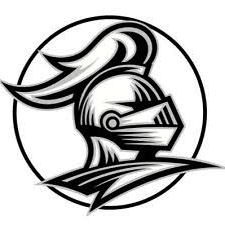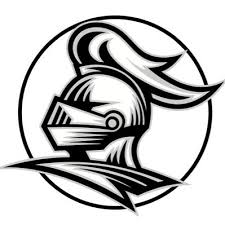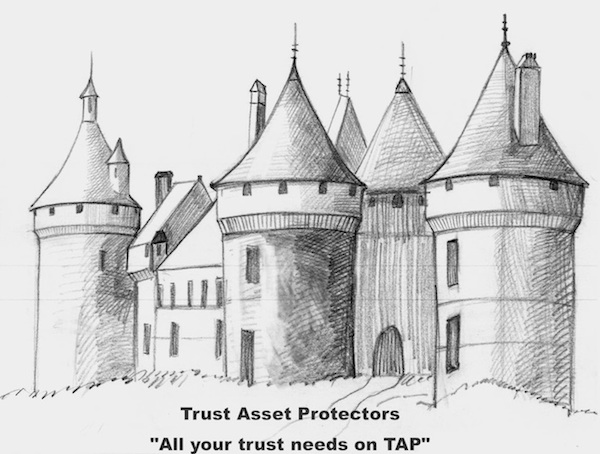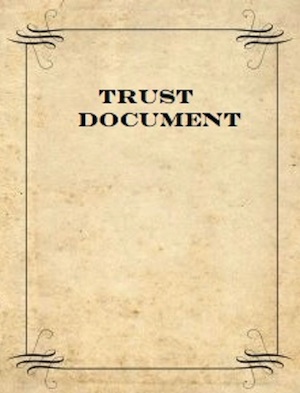



A brief history of trusts and their functions:
Protect your property and assets and take them out of the public
and protect it in the private. Take this opportunity before it's
too late and have peace of mind knowing that your property and assets
are protected now and for your future generations.
A private trust relationship is created at the direction of an
individual, in which one or more persons hold the individual's property
subject to certain duties to use and to protect it for the benefit of
others.
Individuals may control the distribution of their property during their
lives or after their deaths through the use of a privately expressed
trust.

There are many types of trusts and many purposes for their creation. A
trust may be created for the financial benefit of the person creating
the trust, a surviving spouse or minor children, or a charitable
purpose.
An Express trust is created when the settlor expresses an intention
either orally or in writing to establish the trust and complies with
the required formalities. An express trust is what people usually mean
when they refer to a privately expressed trust.
Every privately expressed trust consists of three distinct elements: an
intention of the settlor to create the trust, a res or subject matter,
a trustee, and a beneficiary.
Unless these elements are present, a court cannot enforce an
arrangement as a trust. The settlor must intend to impose enforceable
duties on a trustee to deal with the property for the benefit of
another. Words, conduct, or both can demonstrate intent. It is
immaterial whether the word trust is used in the trust document.
Sometimes, however, the words used by the settlor are equivocal and
there is doubt whether the settlor intended to create a trust. If the
settlor uses words that express merely the desire to do something, such
as the terms desire, wish, or hope, these precatory words (words
expressing a wish) may create a moral obligation, but they do not
create a legal one. In this situation, a court will consider the entire
document and the circumstances of the person who attempted to create
the trust to determine whether a trust should be established.
The settlor must intend to create a present trust. Demonstrating an
intent to create a trust in the future is legally ineffective. When a
settlor does not immediately designate the beneficiary, the trustee, or
the trust property, a trust is not created until the designations are
made. The law of trusts is voluminous and often complicated, but
generally, it is concerned with whether a trust has been created,
whether it is a public or private trust, whether it is legal, and
whether the trustee has lawfully managed the trust and trust property.
A trust is a three-party fiduciary relationship in which the first
party, the settlor, transfers ("settles") a property (often but not
necessarily a sum of money) upon the second party (the trustee) for the
benefit of the third party, the beneficiary.
Trusts and similar relationships have existed since Roman times. The
trustee is the legal owner of the property in trust, as fiduciary for
the beneficiary or beneficiaries who is/are the equitable owner(s) of
the trust property. Trustees thus have a fiduciary duty to manage the
trust to the benefit of the equitable owners. They must provide a
regular accounting of trust income and expenditures. Trustees may be
compensated and be reimbursed for their expenses. A court of competent
jurisdiction can remove a trustee who breaches his/her fiduciary duty.
Some breaches of fiduciary duty can be charged and tried as criminal
offences in a court of law.
A trustee can be anyone who is competent enough to deal with all
private affairs within the trust agreement, a business entity or a
public body. A trust is created by a settlor/grantor/executor, who
transfers title to some or all of his or her property to a trustee, who
then holds title to that property in trust for the benefit of the
beneficiaries. The trust is governed by the terms under which it was
created by the "settlor". In most jurisdictions, this requires a
contractual trust agreement or deed. It is possible for a single
individual to assume the role of more than one of these parties, and
for multiple individuals to share a single role. For example, in a
living trust (Inter Vivos) it is common for the grantor to be both a
trustee and a lifetime beneficiary while naming other contingent
beneficiaries.
An owner placing property into trust turns over part of his or her
"ownership of rights" to the trustee, separating the property's legal
ownership and control from its equitable ownership and benefits. This
may be done for tax reasons or to control the property and its benefits
if the settlor is absent, or deceased.
While the trustee is given legal title to the trust property, in
accepting the property title, the trustee owes a number of fiduciary
duties to the beneficiaries. The primary duties owed include the "duty
of loyalty", and a "duty of care", A trustee may be held to a very high
standard of care in their dealings, in order to enforce their
behaviour. To ensure beneficiaries receive their due, trustees are
subject to a number of ancillary duties in support of the primary
duties, including duties of openness and transparency; duties of
record-keeping, accounting, and disclosure. In addition, a trustee has
a duty to know, understand, and abide by the terms of the trust and
relevant law. The trustee may be compensated and have expenses
reimbursed, but otherwise must turn over all profit from the trust
properties.
A private trust relationship is created at the direction of an
individual, in which one or more persons hold the individual's property
subject to certain duties to use and to protect it for the benefit of
others.
Individuals may control the distribution of their property during their
lives or after their deaths through the use of a privately expressed
trust. There are many types of trusts and many purposes for their
creation.
An Express trust is created when the settlor
expresses an intention either orally or in writing to establish the
trust and complies with the required formalities. An express trust is
what people usually mean when they refer to a privately expressed trust.
Every privately expressed trust consists of three distinct elements: an
intention of the settlor to create the trust, a res or subject matter,
a trustee, and a beneficiary. Unless these elements are present, a
court cannot enforce an arrangement as a trust.
The settlor must intend to impose enforceable duties on a trustee to
deal with the property for the benefit of another. Words, conduct, or
both can demonstrate intent. It is immaterial whether the word trust is
used in the trust document. Sometimes, however, the words used by the
settlor are equivocal and there is doubt whether the settlor intended
to create a trust. If the settlor uses words that express merely the
desire to do something, such as the terms desire, wish, or hope, these
precatory words (words expressing a wish) may create a moral
obligation, but they do not create a legal one. In this situation, a
court will consider the entire document and the circumstances of the
person who attempted to create the trust to determine whether a trust
should be established.
Trusts and similar relationships have existed since Roman times. The
trustee is the legal owner of the property in trust, as fiduciary for
the beneficiary or beneficiaries who is/are the equitable owner(s) of
the trust property. Trustees thus have a fiduciary duty to manage the
trust to the benefit of the equitable owners. They must provide a
regular accounting of trust income and expenditures. Trustees may be
compensated and be reimbursed for their expenses. A court of competent
jurisdiction can remove a trustee who breaches his/her fiduciary duty.
Some breaches of fiduciary duty can be charged and tried as criminal
offences in a court of law.
| Home |
| Glossary |
| Types of Trusts |
| Frequently Asked Questions |
| Further information |
| Contact us |


